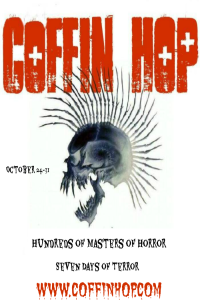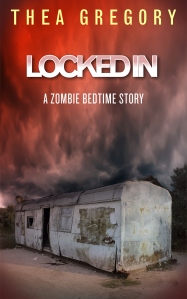As part of the awesome Indie Block Party, I had the opportunity to interview Hemanth Gorur, a paranormal thriller author! Say hi to my zombie and sci fi loving entourage, Hemanth! This is the first interview I’ve ever given, so please forgive me if the questions are weird. I wanted to delve into the nature of speculative fiction, and have some fun.
What draws you to the thriller genre in particular? When does a guy wake up in the morning and say, “You know what, I’m going to write a paranormal thriller. This is the best idea ever!”?
It’s the opportunity to set the pulse racing in your reader. Especially in the paranormal genre, there is immense scope for portraying the fictional as real, the supernatural as something that can have an impact in material life. There is scope to stretch the definition of ‘fiction’.
You’re clearly quite drawn to the psychological elements of your genre. How does adding a paranormal element to your stories complicate this? Are there cases where it gets easier?
Normally psychology as we know it extends to the here and now. We probably use it to understand human beings living in our lifetime, or in some cases dead ones. When I add psychological elements to a paranormal thriller, especially in themes like reincarnation, there is suddenly a vast new sphere of psychological profiles you can draw up. There is a certain tartness, a certain tanginess when you can get your story to revolve around the psychology of living beings but from a vastly different era.
What are the biggest challenges facing you as an author?
I think the issue facing most authors, including me, is that, suddenly you have everybody writing. Not that that’s bad in itself, but what that has done is create a huge slushpile out there in the market. Add to it the various self-publishing mechanisms you have today and suddenly it’s difficult to pick out the good stories from the bad. There is no single policy or policy-making body to my knowledge that is the universal gate-keeper of writing quality, wherein if your writing sucks you have no chance of drowning out that one good story by a deserving author by just dumping 20 badly written stories out there into the market.
What author do you draw the most inspiration from?
That would be two of them actually: Robert Ludlum and Dan Brown. Yes, they’re not paranormal authors, but they do know how to tell a story!
What’s your favorite and least favorite paranormal entity? Would you ever willingly join the realm of the paranormal?
My favorite would be the character in X-Men who shapeshifts to imitate people she sees. I don’t think I have a least favorite. And yes, I would join. It would be fun to be there yet not be there and things like that!
Pick your two favorite authors. Who wins in a barfight?
That would be Ludlum again and Arthur C Clarke. I’d place my money on Ludlum (he was a US Marine!).
Would you live in any of the worlds you’ve created?
I’ve created just one so far – the world in Aymaran Shadow. Though there is a dip back into 18th Bolivia, the world centers around modern India and of course the travel paths of the two antagonists who come South America and England to India. So, I guess I would.
What’s your dream writing location? Coffee shop, bar, library, writing shack, the moon?
I like the last one – moon! But, that sounds dramatic sitting here. I don’t think you could actually write there. I’d go for the beach – a moderately warm sunny beach, with people frolicking around in the distance, while I’m under the shade of beach groves in a recliner, sipping my apple juice and pounding out those pages.




You must be logged in to post a comment.